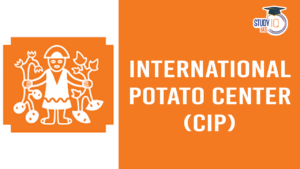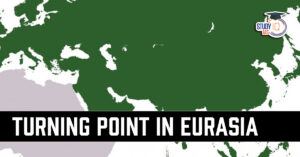Table of Contents
UNICEF
UNICEF is a United Nations agency responsible for promoting and protecting the rights of children worldwide. United Nations International Children’s Emergency Fund (UNICEF) was established in 1946 to provide emergency food and healthcare to children in countries that were devastated by World War II.
Today, UNICEF works in over 190 countries and territories, assisting children and their families in areas such as health and nutrition, education, child protection, water, sanitation, and hygiene. UNICEF also advocates for children’s rights and promotes policies and programs that improve the well-being of children, especially those who are marginalized or disadvantaged.
UNICEF India Welcomes Kareena As National Ambassador
Kareena Kapoor Khan’s appointment as UNICEF India’s National Ambassador marks a significant milestone in the organization’s longstanding partnership with India. Her dedication to advocating for children’s rights, particularly in areas like education, gender equality, and healthcare, has already made a meaningful impact through her role as a Celebrity Advocate since 2014.
Given her influence and reach, Khan’s involvement will undoubtedly amplify UNICEF’s efforts to ensure every child in India has access to early childhood development, education, healthcare, and gender equality. Her support during the COVID-19 pandemic and her advocacy for children’s learning and well-being reflect her commitment to making a difference in the lives of young people.
With Kareena Kapoor Khan on board as the National Ambassador, UNICEF India can leverage her platform and influence to drive positive change and raise awareness about the issues affecting children across the country.
UNICEF Full Form
UNICEF stands for the United Nations Children’s Fund. It was originally known as the United Nations International Children’s Emergency Fund. The United Nations General Assembly created UNICEF on December 11, 1946. The organization’s original mission was to provide emergency food and healthcare to children and mothers in countries affected by World War II. In 1953, UNICEF changed its name to reflect its broader mission but kept the original abbreviation. UNICEF is a United Nations agency that provides humanitarian and developmental aid to children worldwide.
UNICEF Foundation
UNICEF operates as a foundation within the United Nations system, relying on voluntary contributions from governments, individuals, and private sectors to fund its activities and projects. UNICEF was created to provide emergency food and healthcare to children and mothers in countries affected by World War II. After 1950, UNICEF began to focus on general programs to improve children’s welfare. These programs focused on less-developed countries and emergencies. UNICEF’s headquarters are in New York. You can learn more about UNICEF and its work at www.unicef.org.
UNICEF Headquarters
The headquarters of UNICEF is in New York City, United States. The UNICEF headquarters acts as the organization’s worldwide operations hub, including programme development, fundraising, and collaboration with partners and stakeholders. It also houses several departments such as communications, finance, human resources, and information technology. In addition, the facility houses a public visitor centre with displays about UNICEF’s work and the difficulties children face worldwide.
UNICEF Establishment
The United Nations General Assembly established UNICEF (United Nations Children’s Fund) on December 11, 1946, to give emergency food, healthcare, and other aid to children in war-torn countries. The organization’s early concentration was on giving urgent help to children in Europe, but it swiftly expanded its operations to other parts of the world.
UNICEF’s mandate has extended throughout time to encompass long-term development projects aimed at increasing children’s well-being and promoting their rights. Today, UNICEF operates in over 190 countries and territories, with a particular emphasis on the most vulnerable and disadvantaged children, such as those afflicted by poverty, violence, and prejudice.
History of United Nations International Children’s Emergency Fund
The United Nations Relief and Rehabilitation Administration established UNICEF in 1946 as the International Children’s Emergency Fund (ICEF) to assist children affected by World War II. In 1953, UNICEF was admitted as a permanent member of the United Nations. The name was shortened to United Nations Children Fund, although the organisation is still known as UNICEF.
The United Nations General Assembly has mandated it to advocate for the preservation of children’s rights, to assist in meeting their basic requirements, and to increase their opportunity to attain their full potential.
UNICEF is guided by the 1989 Convention on the Rights of the Child. It attempts to establish children’s rights as enduring ethical concepts and international norms of child behaviour.
Functions of UNICEF
- Providing immunizations and disease prevention
- Treating children and mothers with HIV
- Improving childhood and maternal nutrition
- Promoting education
- Providing emergency relief in response to disasters
- Supporting child health and nutrition
- Safe water and sanitation
- Quality education and skill-building
- Protecting children and adolescents from violence and exploitation
- Providing protection and rehabilitation to child refugees
- Creating safe and inclusive environments for children with disabilities
- Providing long-term assistance to children at risk during natural, public health and political emergencies
- Supplies papers to publish textbooks and literature to facilitate learning among children
- Provides training and funds to health and sanitisation workers
UNICEF Organisational Structure
Overall, UNICEF’s functions are aimed at ensuring that every child has the opportunity to survive, thrive, and reach their full potential, regardless of their background or circumstances. UNICEF is administered by an Executive Board of 36 members chosen for three-year terms by the United Nations Economic and Social Council.
UNICEF Regional Offices are located in the following countries.
- Regional Office for the Americas and the Caribbean, Panama City, Panama
- Eastern and Southern Africa Regional Office, Nairobi, Kenya
- Europe and Central Asia Regional Office, Geneva, Switzerland
- East Asia and the Pacific Regional Office, Bangkok, Thailand
- Regional Office for the Middle East and North Africa, Amman, Jordan
- South Asia Regional Office is located in Kathmandu, Nepal, and the West and Central Africa Regional Office is located in Dakar, Senegal.
Each region served by UNICEF is assigned several seats on the Executive Board, ensuring that all regions are represented. There are also 33 national committees around the world, which are non-governmental groups that help promote children’s rights and raise funds.
UNICEF Goodwill Ambassadors
UNICEF Goodwill Ambassadors are celebrities and public figures who use their fame and influence to promote UNICEF’s mission and advocate for the rights of children. They help raise awareness and mobilize resources for UNICEF’s programs and campaigns, and they use their platforms to amplify the voices of children and young people.
There are currently over 200 UNICEF Goodwill Ambassadors, including actors, musicians, athletes, and other prominent individuals from around the world. Some of the most well-known UNICEF Goodwill Ambassadors include:
- Priyanka Chopra Jonas, actor and producer from India
- David Beckham, a former professional footballer from the United Kingdom
- Millie Bobby Brown, an actor from the United States
- Shakira, singer and songwriter from Colombia
- Serena Williams, a professional tennis player from the United States
- Orlando Bloom, an actor from the United Kingdom
- Vanessa Nakate, Goodwill Ambassador for Uganda
UNICEF Goodwill Ambassadors are appointed by the Executive Director of UNICEF and serve in a voluntary capacity. They participate in events, media interviews, and other activities to raise awareness and mobilize support for UNICEF’s work.
UNICEF Funding
UNICEF is funded entirely by voluntary contributions from governments, private individuals, and corporations. It works closely with other UN agencies, governments, civil society organizations, and communities to ensure that every child has the opportunity to survive, thrive, and reach their full potential.
The nation’s committees are a distinctive aspect of UNICEF and a crucial component of its worldwide organisation. The National Committees persistently work to seek funding from the private sector, advocate children’s rights, and ensure global visibility for children who are at risk from poverty, disasters, armed conflict, abuse, and exploitation. They act as the public face and devoted voice of UNICEF.
On behalf of children’s rights, it also mobilises a wide range of partners, including the media, national and local government representatives, NGOs, experts including doctors and attorneys, corporations, schools, young people, and the general public.
UNICEF India
UNICEF (United Nations Children’s Fund) has been working in India since 1949 to promote the rights and well-being of children. India is home to the largest population of children in the world, and UNICEF’s programs and activities in the country are aimed at addressing the major challenges facing children and young people, including malnutrition, poor health, lack of education, and exposure to violence and exploitation.
UNICEF works closely with the Government of India, civil society organizations, and other partners to implement programs and policies that improve the lives of children and their families. Some of the key areas of focus for UNICEF in India include:
- Health and Nutrition: UNICEF works to improve access to basic healthcare services, including immunization, maternal and child health, and nutrition. It also supports efforts to prevent and treat HIV/AIDS, tuberculosis, and other infectious diseases.
- Education: UNICEF works to improve access to quality education for all children, with a focus on girls and children from marginalized communities. It also supports efforts to enhance the quality of teaching and learning and to strengthen education systems.
- Child Protection: UNICEF works to protect children from all forms of violence, abuse, and exploitation, including child labour, child marriage, trafficking, and online exploitation. It also supports efforts to strengthen child protection systems and promote positive parenting.
- Water, Sanitation, and Hygiene: UNICEF works to improve access to clean water, sanitation, and hygiene facilities, particularly in rural and remote areas. It also supports behaviour change campaigns to promote healthy practices and prevent the spread of disease.
- Emergency Response: UNICEF responds to emergencies and disasters in India, providing emergency relief and assistance to affected children and families.
UNICEF Strategic Plan 2015-2025
The Strategic Plan for UNICEF, 2022–2025, embodies UNICEF’s unwavering dedication to advancing the rights of all children, everywhere. It occurs at a critical time when children’s human rights are in danger at a level that hasn’t been witnessed in more than a decade. It highlights United Nations Children’s Emergency Fund’s commitment to child-focused Sustainable Development Goals (SDGs) in all contexts and is the first of two consecutive plans leading up to 2030. As a result, it offers a broad framework for national committees and country programmes.
The Strategic Plan will direct coordinated activity towards an inclusive recovery from COVID-19, acceleration towards the realisation of the SDGs, and realisation of a society in which every child is included, free from discrimination, and has agency, opportunity, and their rights realised.
Overall, UNICEF’s work in India is aimed at promoting the rights and well-being of every child, and ensuring that no child is left behind. The voices of children, communities, governments, UN sister agencies, the commercial sector, civil society, and other partners influenced the Plan. It defines core programmatic goals as well as an associated set of outcome areas, change methods, and enablers, such as innovative or expedited approaches to climate action, mental health, and social protection.
UNICEF UPSC
UNICEF now works in over 190 countries, in partnership with other UN partners, and as part of the greater UN system. It is not an UN-specialised agency. UNICEF also publishes research papers on many topics of children all across the world. It was awarded the Nobel Peace Prize in 1965.
UNICEF ( United Nations Children’s Emergency Fund ) is an important topic for the UPSC exam, especially in the context of social welfare and international relations. For more details related to UPSC Examination; students can visit the official website of StudyIQ UPSC Online Coaching. Aspirants can improve their question-solving skills by solving mock on weekly basis. Students can go for UPSC Mock Test to enhance their preparations for their upcoming IAS Prelims examination. Mocks help to score well in the exam.
| Other Important Articles | |
| United Nations Environment Programme | United Nations Security Council |
| NATO Countries | International Organizations and their Headquarters |
| G7 Countries | BIMSTEC Countries |


 America’s Plan to Manage AI Proliferat...
America’s Plan to Manage AI Proliferat...
 International Potato Center (CIP) in Agr...
International Potato Center (CIP) in Agr...
 Turning Point in Eurasia and its Implica...
Turning Point in Eurasia and its Implica...





















